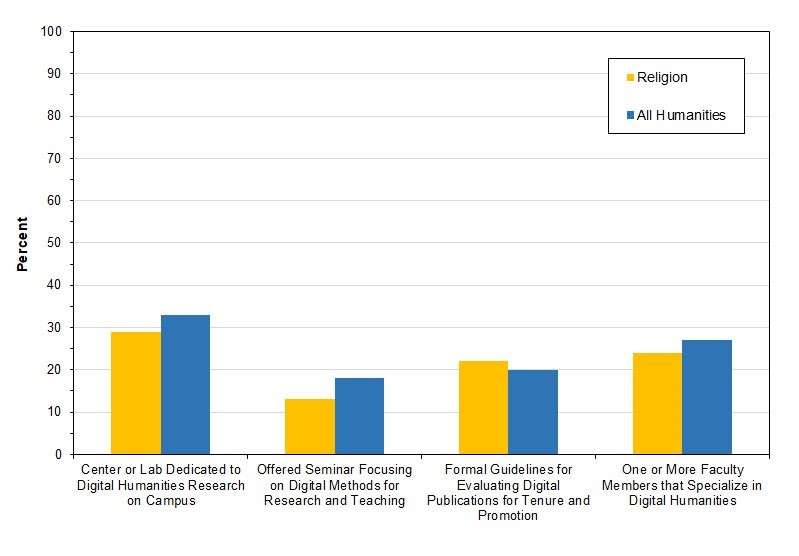This article is the third in a series that unpacks and contextualizes data on religion departments collected by the American Academy of Arts and Sciences Humanities Indicators project. All three articles were written in collaboration between the American Academy and the AAR. Various data sources are noted along with numerous links to reports and indicators maintained by the Indicators. The first article in this series explored trends related to undergraduate and graduate enrollments and degree completions; the second article focused on indicators related to graduate students and faculty as well as those pertaining to working conditions.
The recent Humanities Departmental Survey (HDS) offers a rich set of data on vital structural aspects of religion departments, such as engagement with digital skills in the curriculum, use of online education (before the pandemic), and support for student careers. One particular value of these data comes from the ability to compare religious studies to other humanities fields. Taken together, these data present a number of strategic avenues for action in religious studies, especially in light of the growing demand for digital skills and teaching experience.
Digital Humanities
Perhaps most notably, religion departments appear modestly less likely to engage with digital tools than their peers in other humanities departments. The Humanities Indicators measured engagement with digital humanities through four measures: the presence of a dedicated center or lab on campus, specialized faculty in the department, relevant course offerings, and departmental guidelines for the evaluation of digital scholarship (see Fig. 1). Among these, religion departments reported higher rates than the average across all humanities on only one question: the provision of guidelines for evaluating digital scholarship. That finding may be a result of work done by AAR members and staff to develop and share the Guidelines for Evaluating Digital Scholarship. Such an example would underscore the importance of such actions on behalf of professional associations to raise awareness of and set standards for emergent issues.
Fig. 1: Share of Departments Engaged with Digital Methods, Fall 2017

Humanities Indicators, The State of Religion Departments in Four-Year Colleges and Universities (2020), tables REL21 and REL19.